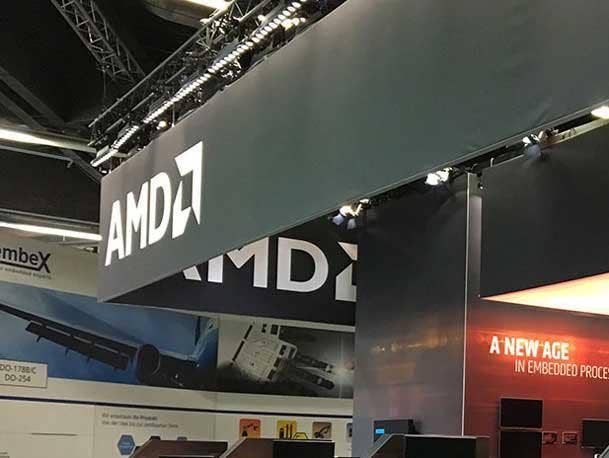Activist Investor Buys AMD Stake But Won’t Seek Changes: Reports
Activist investor Dan Loeb’s reported move with AMD is in contrast to what he did with Intel in late 2020 when his firm, Third Point, gained a ‘significant stake’ in the semiconductor giant and calling for major changes.

AMD’s stock price rose nearly 2.8 percent Thursday after reports said activist investor Dan Loeb of the hedge fund Third Point LLC took a stake in the chip designer but won’t press for changes.
Reuters said Loeb doesn’t plan to press for changes at AMD, as he has with other companies in the past through Third Point, since his firm’s investment in the chip designer is deemed a passive stake. CNBC said Loeb took a position in the company when its stock price was struggling. Both outlets cited unnamed sources.
[Related: Intel Vows To Restore Staff Salaries In Fall As EMEA Head Resigns]
AMD’s stock price was at $80.44 per share at market close Thursday.
CRN has reached out to Third Point for comment. An AMD representative declined to comment.
The Santa Clara, California-based company had a hard time pleasing Wall Street last year with shares falling more than the PHLX Semiconductor Index, as pointed out by CNBC. But Intel’s x86 rival has been on the rebound this year, with shares growing 26.65 percent to date.
AMD reported record revenue for 2022 in late February, growing 16 percent from the previous year despite experiencing a significant decline in sales for PC chips.
The company was able to offset the PC downturn in part with a 64 percent increase in data center revenue, most of which came from cloud service providers buying its EPYC server CPUs. AMD also saw a big boost in embedded revenue from the addition of sales from its 2022 Xilinx acquisition, and it also saw gaming revenue increase, largely driven by video game consoles from Sony and Microsoft.
AMD’s momentum last year allowed it to reach 31.3 percent market share against Intel for x86 CPUs in the fourth quarter of 2022, according to analyst firm Mercury Research.
Loeb’s move with AMD is in contrast to what he did with Intel in late 2020 when his firm, Third Point, gained a “significant stake” in the semiconductor giant and called for major changes.
Changes pushed by Loeb included the divestiture of “certain failed acquisitions” and the exploration of whether Intel should sell its operations. He also lambasted Intel’s board of directors for allowing its management team “to fritter away the company’s leading market position while simultaneously rewarding them handsomely with extravagant compensation packages.”
Shortly after Loeb made his points to Intel, the chipmaker announced in January 2021 that it would replace former CEO Bob Swan with company veteran Pat Gelsinger. But rather than moving to sell Intel’s manufacturing operations, Gelsinger doubled down on the company’s integrated device manufacturing strategy. This plan includes spending tens of billion on new chip factories in the West, investing in advanced chip-making capabilities and starting a new contract chip manufacturing business.
However, Gelsinger has pushed Intel to outsource more production of certain chips to third-party foundries such as TSMC. Intel has also exited several businesses under Geisinger’s leadership.
Third Point recently took a stake in enterprise applications vendor Salesforce, joining four other activist investors who have taken a position in the company.